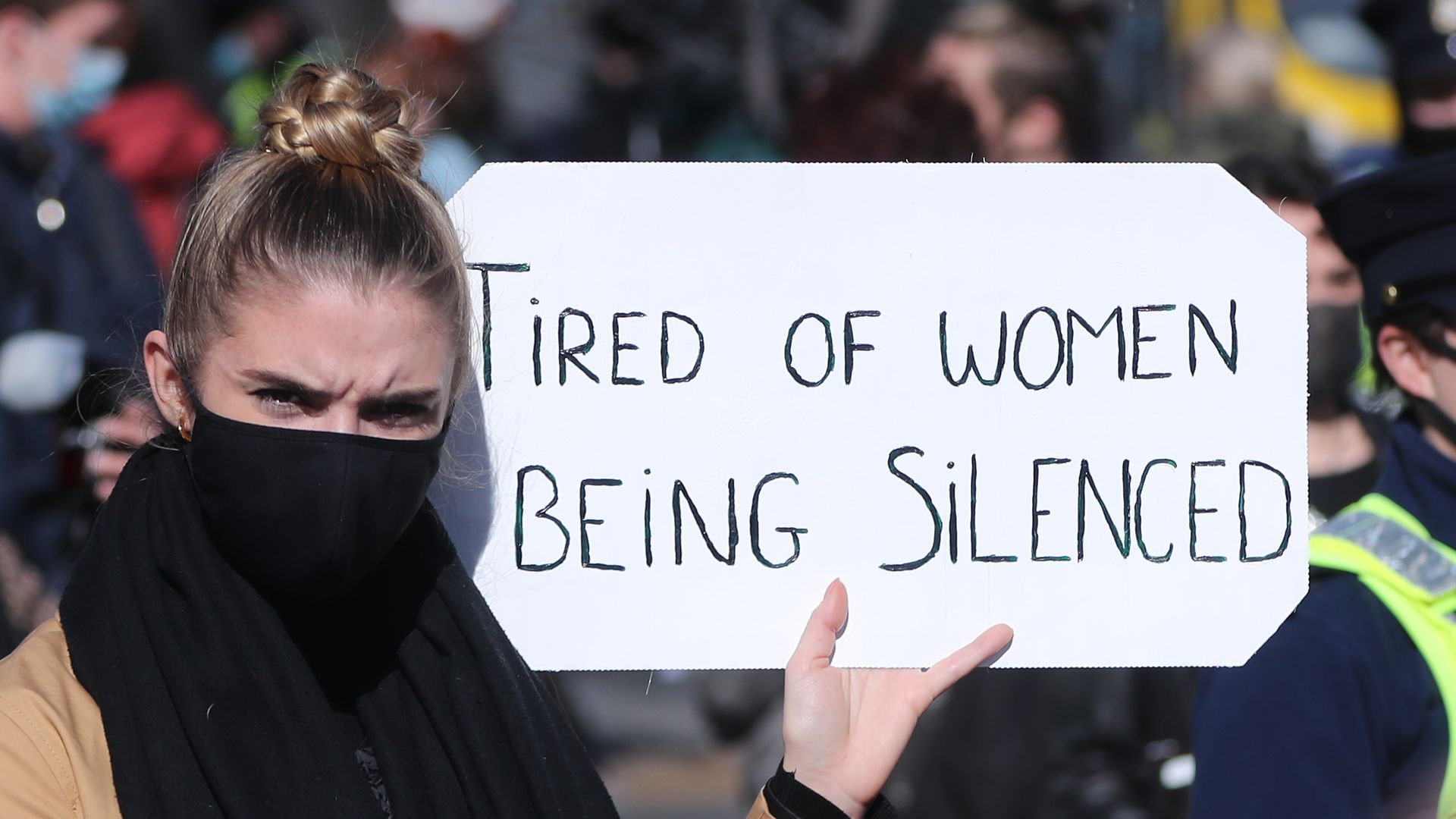
NINA DE AYALA PARKER on the pandemic of gender violence that led to the death of Sarah Everard.
The reaction to the murder of Sarah Everard marks a watershed moment in the fight to end sexual harassment and femicide in the UK. Why? Because, the focus is no longer on women, but on men. It is not women who are to blame for sexual harassment or femicide, it is men. Therefore, the responsibility, the onus, the lens, must shift and is shifting to men.
This is what is different to previous women’s rights protests to reclaim the streets and reclaim the night, the fact that we are no longer thinking inwardly at what we women can do, but rather shifting focus to ‘what can men do to change their behaviour in this’ as it is men who are perpetuating the violence and sexual harassment. Until there are more men at a women’s right protest, more men actively fighting to end violence against women and girls, we will not achieve gender equality.
Everyone has a role to play. The media, by a simple change of phrase and syntax, can place the responsibility on ‘the man’ in headlines and in reporting. The police can put responsibility on men.
Just last week women in South London were asked to ‘stay at home’, this shouldn’t have been the case. Applying the mantra of ‘men’s collective responsibility, the police should have asked men to stay home.
Unfortunately, we haven’t got the means to put every man under house arrest just to filter out the dangerous ones, and we know that the police can be dangerous too, as the response to the vigil showed this weekend.
It shouldn’t have to take the death of a woman on her way home for society and policymakers to understand the seriousness of violence against women, and that it is not women who should feel restricted, but men who should actively take responsibility to ensure that women are made to feel safe. We must change societal norms together.
If you are a man reading this, small actions can make a great difference. Next time you are walking home in the evening and you happen to be walking behind a woman, cross the road. She will feel safer if you do. If you are a parent reading this, instead of telling your daughter to be careful and to not wear revealing clothing, tell your son about the absolute necessity of consent and healthy relationships, and to never catcall a young woman. The same goes for teachers.
Ending violence against women and sexual harassment demands collective action. From in the home, to education, to conversations with friends, to legislation in Parliament.
Sexual harassment is a pandemic. Violence against women and girls is a pandemic. Both are obstructing our ability to solve other social issues and of course the most pressing issue of our time: the climate emergency.
The suffragettes had to use a male politician as their catalyst to female suffrage. We need more men as catalysts and allies to end violence against women and girls, and sexual harassment. We know that gender equality benefits all of society. And the quicker we get there, the better. The burden is on men for this one, and they’ve got to change.









